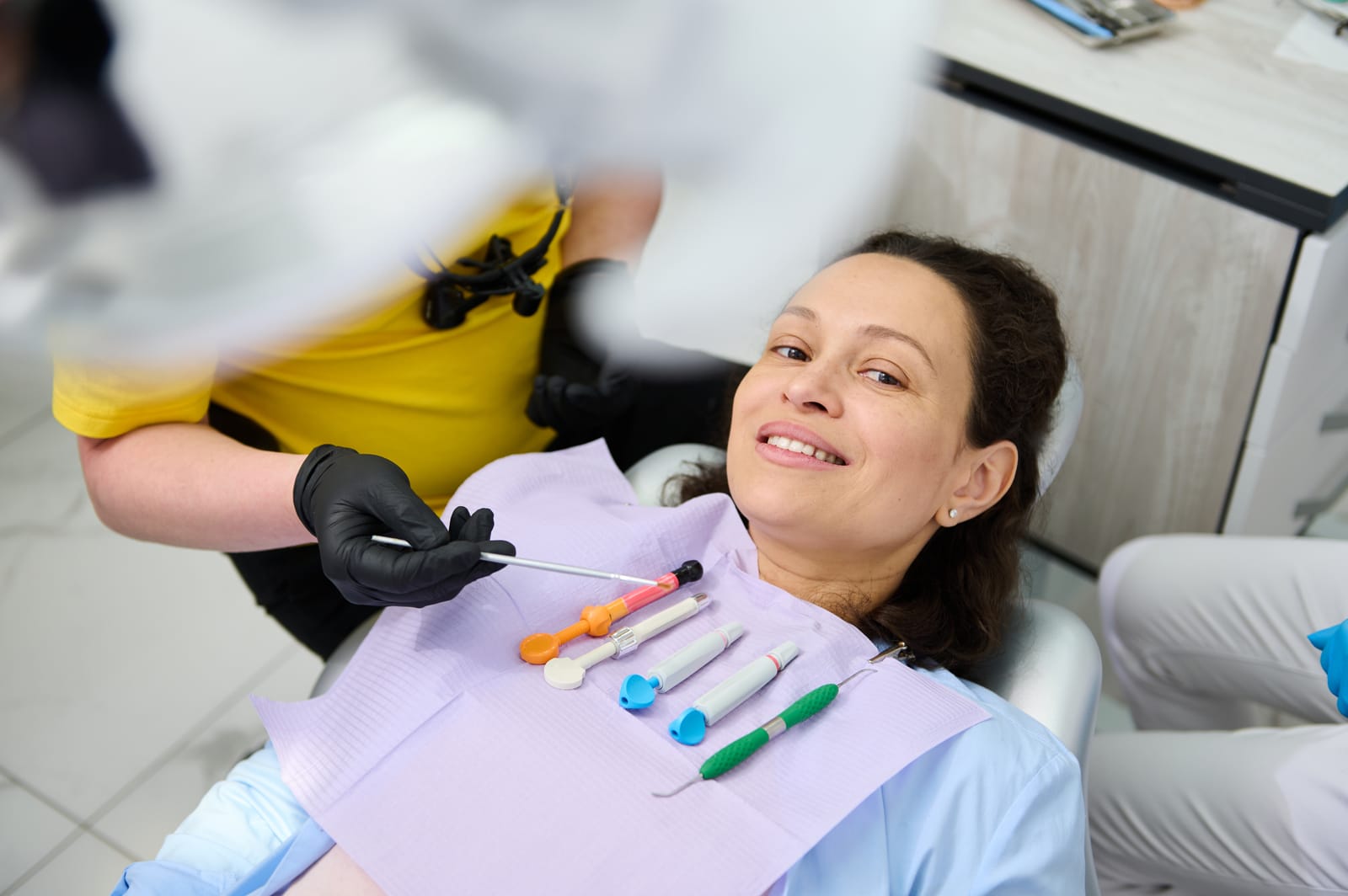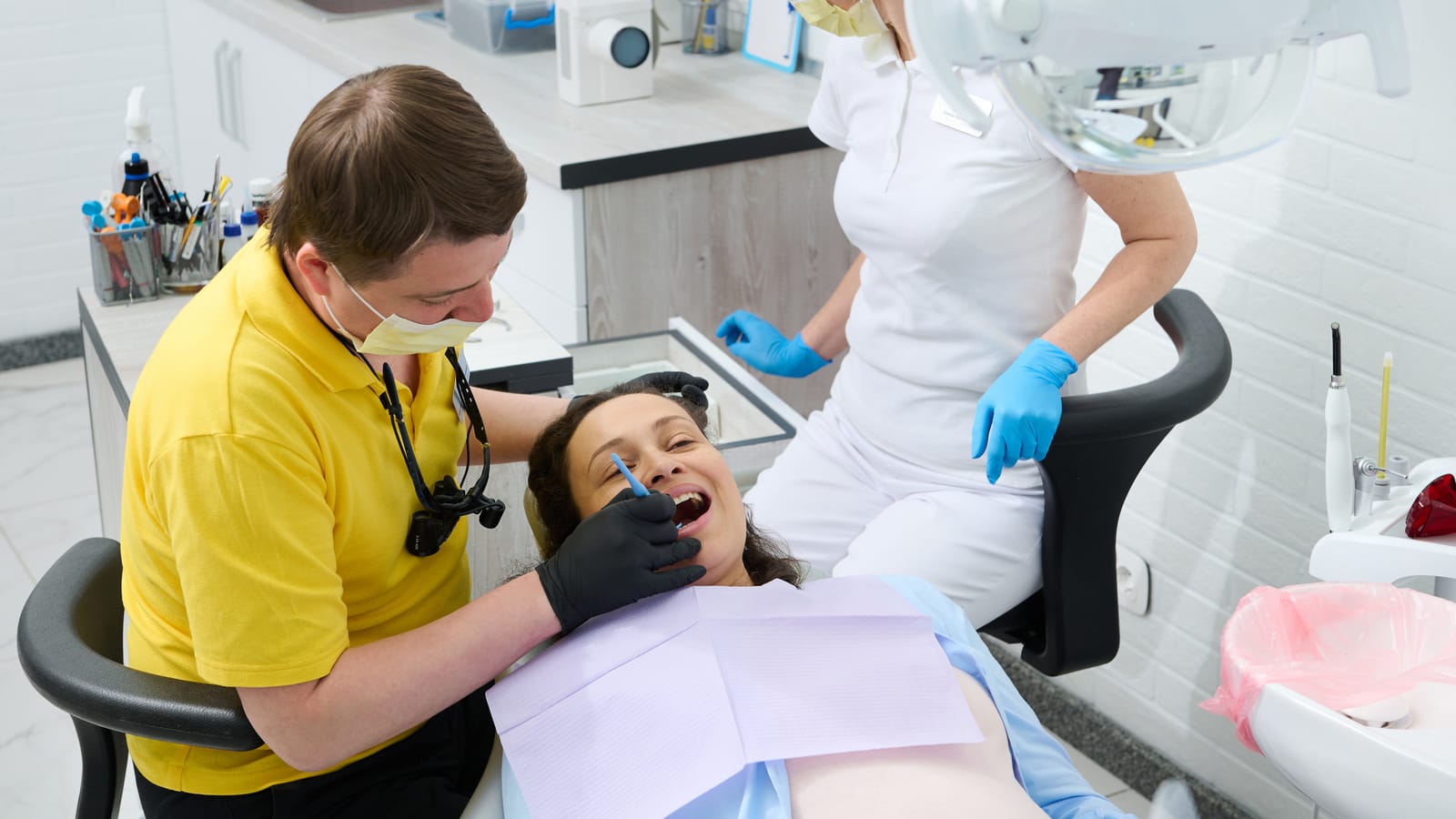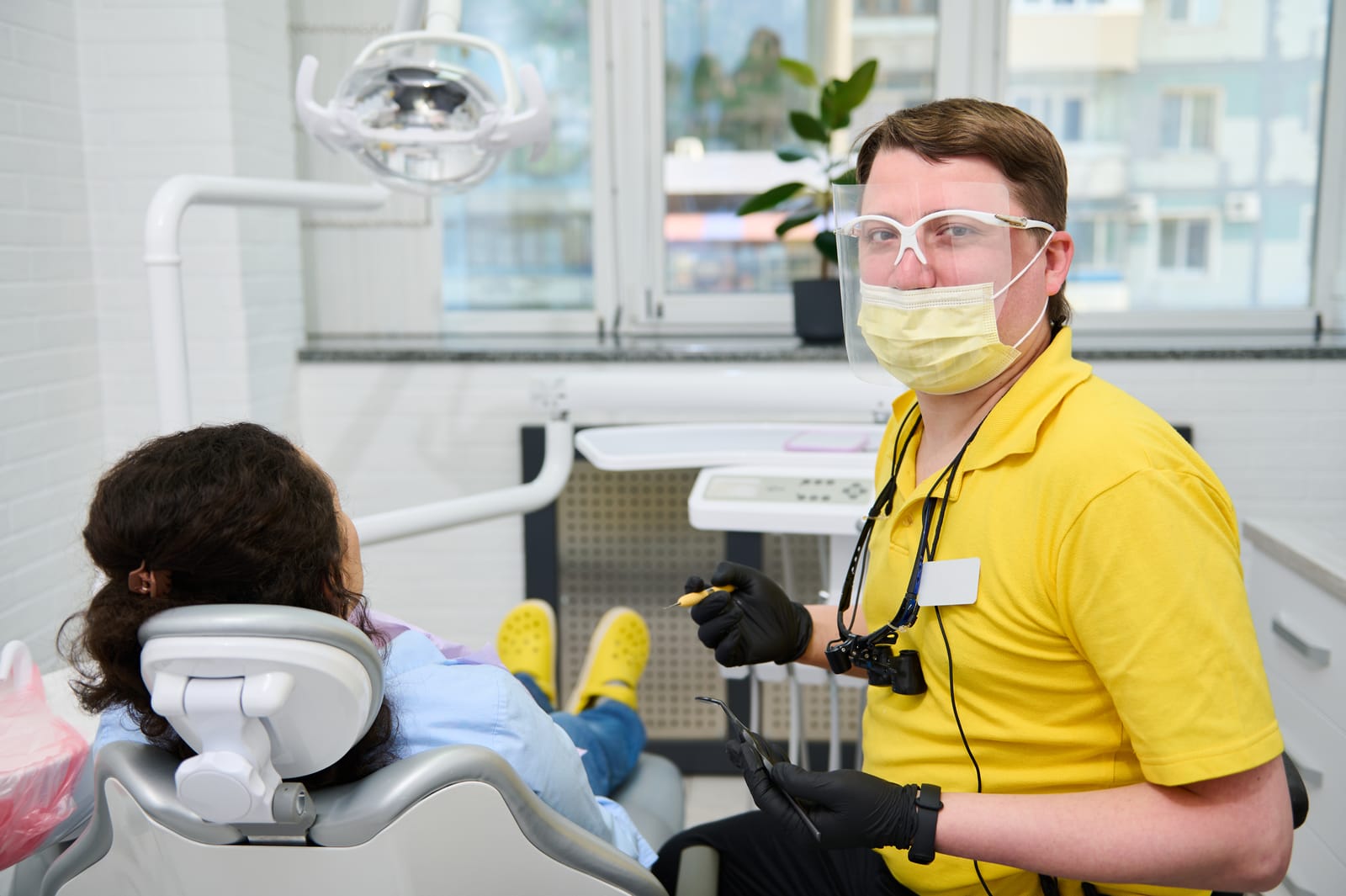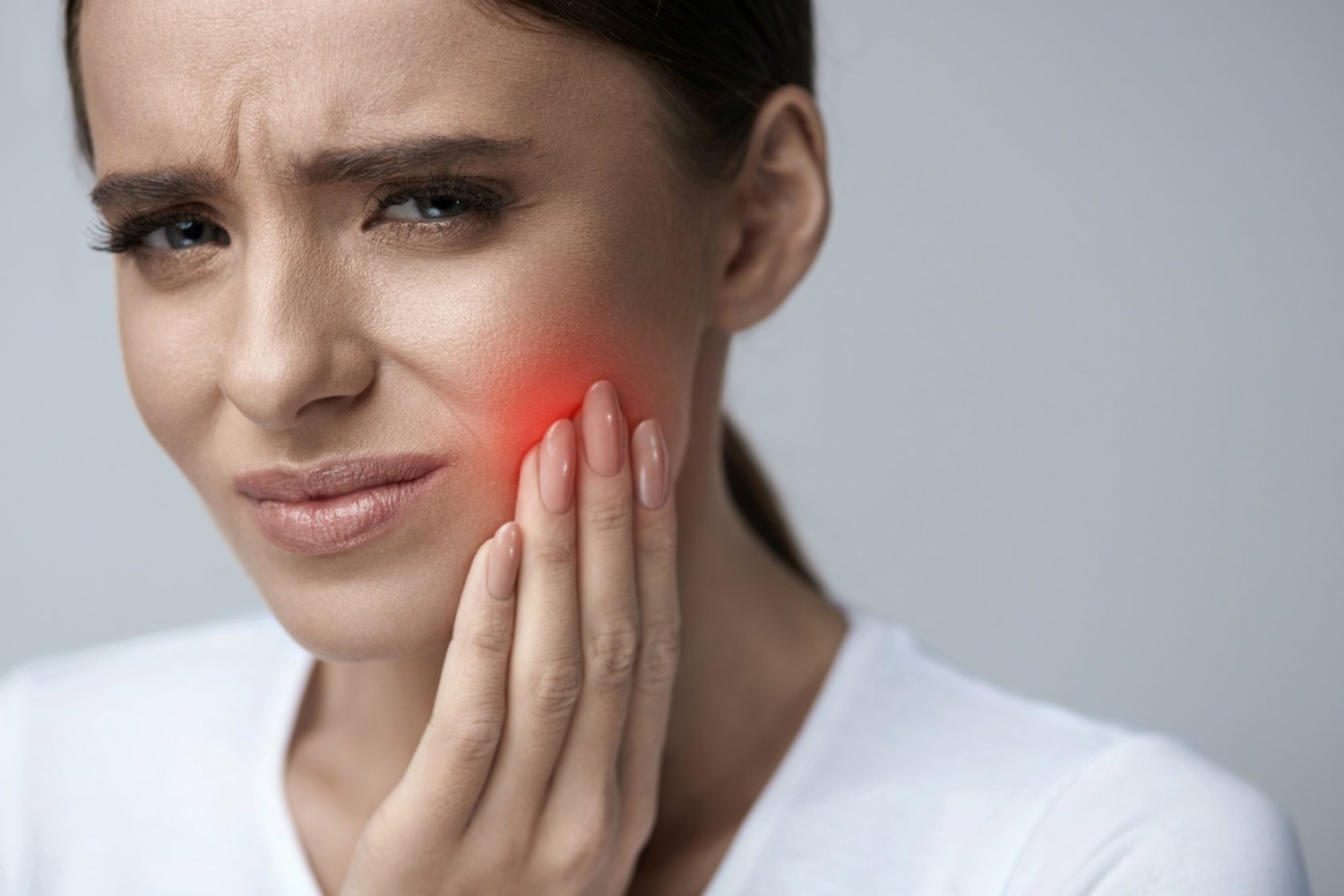There are many misconceptions about dental treatment for pregnant women. Many women are sure that it is in no way possible to treat teeth while in an interesting position. We will disprove this myth and tell you in detail when it is better to treat teeth, as well as whether x-rays and anesthesia are harmful to the health of expectant mothers.
Does pregnancy affect my teeth?
During pregnancy, the condition of your teeth can deteriorate dramatically, especially if you have already had problems with your teeth and have had treatment. This is due to the extreme hormonal changes that begin immediately after conception.
What happens to the pregnant woman’s body and how does it affect her teeth?
- Blood circulation accelerates and blood flow to the organs increases. Due to increased blood supply, the structure of the gums is disturbed, they become more friable, and germs easily penetrate into the tissues
- Changes the acid-alkaline balance of the oral cavity. During pregnancy, the pH level rises, which contributes to thinning of tooth enamel.
- Taste preferences change. Experts note that pregnant women consume more simple carbohydrates, which serve as a magnet for microbes, so plaque forms faster than usual
Toxicosis leads to a deficit of calcium in the body, and this is reflected in the structure of enamel and the condition of teeth in general. Therefore, for the prevention of diseases, after dental treatment, pregnant women need to replenish calcium reserves. It is better to use not only food supplements, but also to deliver useful substances directly to the teeth with the help of special pastes. Even when planning your pregnancy, consult a dentist to choose oral care products for you.

Three factors that determine the health of your teeth during pregnancy
Of course, pregnancy increases the load on the body, but the condition of the teeth is affected not only by hormonal changes, but also by other factors.
- Quality of hygiene
Irregular hygiene causes the formation of dental calculus, which leads to the development of diseases of the gums and teeth. To avoid having to treat your teeth during pregnancy, you should pay special attention to oral hygiene. Have a professional cleaning every 3 months, and at home use additional means of hygiene – rinses, irrigator and floss. - Constant stress
It’s no secret that pregnant women are very emotional and sensitive, they can be upset by any little thing. During stress there is a release of the hormone cortisol, which reduces immunity. Because of this, the development of microbes in the oral cavity is accelerated - Heredity
Caries in pregnant women and other dental problems often arise due to genetic predisposition, this is a proven fact. Therefore, if the older generation in your family suffered from tooth decay, try to pay more attention to your teeth, especially if you are expecting a new addition to your family.
Is it possible to treat teeth during pregnancy?
Of course you can. Moreover, it is necessary if you have not managed to solve all dental problems before pregnancy. During this period, any infection can badly affect the health of your baby. In pregnancy, you need to treat even a small caries as soon as possible, because there is a risk that the disease will develop quickly, and the infection through the blood will spread throughout the body.

Optimal timing for dental treatment in pregnant women
The 2nd trimester is considered the most favorable period for dental treatment in pregnancy. At this time, you can safely engage in the prevention of caries, fill teeth and even put crowns. At the earliest stage of pregnancy, you can treat teeth only in emergency cases, for example, in severe pain. In the 3rd trimester, it is not recommended to engage in dental treatment, as the body is severely weakened and may react badly to such procedures.
What should pregnant women do in case of acute toothache?
Sharp toothache is quite common during pregnancy. However, if in a normal situation you can drink a tablet of anesthetic, a woman in a position needs to solve the problem in a more delicate way.
The first thing to do when you are worried about a tooth is to call your dentist and make an appointment. If there is no opportunity to go to the doctor, you can:
- Rinse your mouth
A weak solution of baking soda or salt, as well as decoctions of mint, sage, chamomile and oak bark will do. Gargle is effective only if you repeat the procedure every hour - Drink the medicine
Call your dentist and clarify what medications you are allowed. If there are no individual contraindications, then you can drink ibuprofen, no-shpa or spasmalgon. These drugs are absolutely harmless for pregnant women and will relieve toothache for a couple of hours
In no case should you warm the sore spot, as this will lead to more inflammation and possibly flux. If a toothache occurs, go to the dentist immediately to avoid complications.
Dental fillings in pregnant women
If a pregnant woman has tooth decay, the tooth must be treated and filled, otherwise it will not be possible to prevent the spread of infection. The same goes for pulpitis, the nerve is removed and the canals and tooth are carefully filled. This will keep your tooth intact and healthy.

Can pregnant women have dental treatment with anesthesia?
Dental treatment in pregnancy is performed using a safe local anesthetic. The most commonly used are Ubistezin and Ultracaine, they have a reduced concentration of vasoconstrictor and do not penetrate the placental barrier.
If you first go to the dentist while you are pregnant, make sure you tell him about your pregnancy and your due date. This is very important, because pregnant women need a special approach and the selection of anesthesia, the doctor must take into account your condition when choosing the method of treatment.
Removal of teeth in pregnant women
If the treatment has not brought results and the tooth can no longer be saved, then it must be removed to eliminate the focus of infection. Usually, doctors try to postpone tooth extraction to the second trimester, when it is safer for the pregnant woman. However, in emergency situations, tooth extraction is carried out at any term. Before the procedure, an X-ray is mandatory, and dental treatment in pregnancy is carried out with the use of local anesthesia.
X-ray diagnosis of teeth in pregnant women
You do not need to be afraid of X-rays, because the clinic “MediLine” uses only modern digital equipment for diagnosis. The image obtained with the help of a visiograph is absolutely safe for children and expectant mothers.
Prosthetics for pregnant women
Prosthetics of teeth during pregnancy has no contraindications. This procedure will not harm you or your baby. However, crowns or veneers can only be fixed on your own teeth or an implant that was placed before pregnancy. The implant procedure itself is contraindicated during pregnancy.
Oral care
To keep your teeth beautiful and strong both during and after pregnancy, proper care is essential:
- Brush your teeth twice a day and spend at least 5 minutes on it
- Don’t forget about additional hygiene tools: irrigator, floss, mono-floss brushes.
- Rinse your mouth after every meal to prevent food particles from attracting germs.
- Have professional hygiene and remineralization treatments once every trimester.




